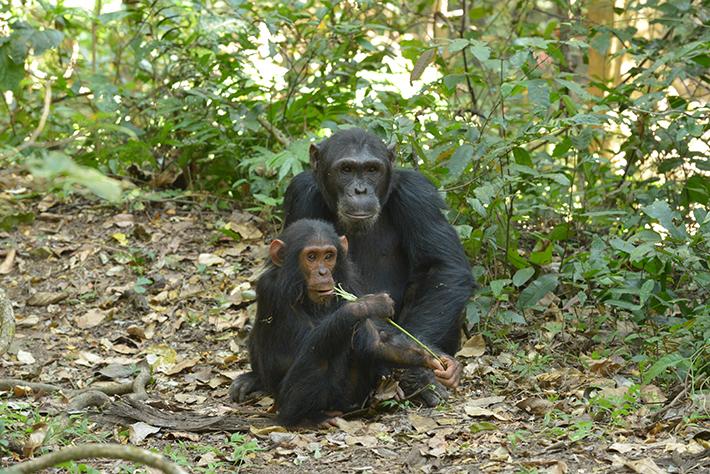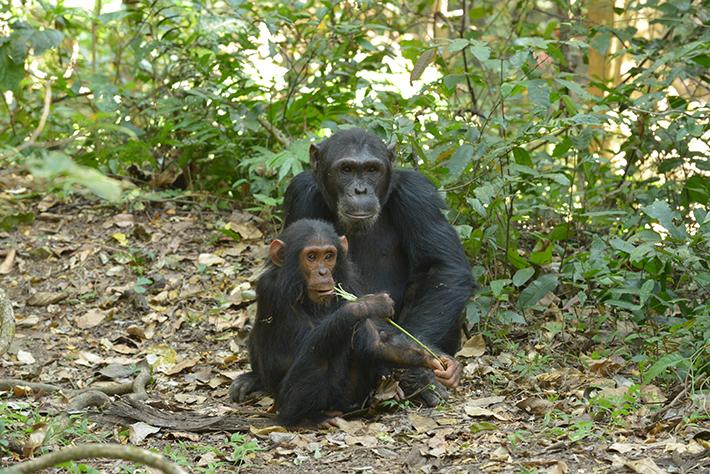
Credit: Joel Bray, Arizona State University
WASHINGTON (Nov. 8, 2016)–New research suggests that male chimpanzees are more invested in protecting their own offspring than previously thought. Researchers found male chimpanzees spend time with non-mating female chimpanzees that are caring for their offspring. This finding is unexpected since the species is highly promiscuous and researchers previously questioned whether male chimpanzees could recognize their offspring.
Because males spending time with nursing mothers did not increase the likelihood that they would be the father of that mother's next infant, the findings support the paternal effort hypothesis, in which males associate more with mothers in order to protect their offspring, rather than curry favor with the female. The research contributes to the broader anthropological question of why human fathers invest so much in offspring.
The authors of the paper, "Chimpanzee Fathers Bias Their Behavior Toward Their Offspring," conducted their research based on long-term data from Gombe Stream National Park in Tanzania where long-term data collection is supported by the Jane Goodall Institute. Using more than 25 years of behavioral data digitized at the University of Minnesota, Duke University, the Lincoln Park Zoo, Franklin & Marshall College and The George Washington University, the researchers examined patterns based on 17 father chimpanzees and 49 mother-infant pairs to see if the males could recognize their offspring and if the male's behavior was different around them. The researchers found the males associated with mothers of their offspring early in infancy and interacted with their infants more than expected.
"As anthropologists, we want to understand what patterns could have existed early in human evolution that help explain how human behavior evolved," said Carson Murray, assistant professor of anthropology at the George Washington University and lead author of the paper. "This research suggests that males may sometimes prioritize relationships with their offspring rather than with potential mates. For a species without pair-bonds where it was assumed fathers didn't know which infants were their own, this is an important finding."
The significance of the finding lies in the evidence that chimpanzees, one of human's closest living relatives, not only have paternal recognition but also invested in offspring rather than only focusing on future mating effort. The researchers found the males would spend time grooming and caring for their offspring.
"Our findings are not only further evidence that chimpanzee fathers recognize their offspring in a promiscuous species, but also that fathers behave differently around their offspring," said Margaret Stanton, postdoctoral scientist at GW's Center for the Advanced Study of Human Paleobiology and co-author of the paper.
The scientists stress that while the study is an important piece of research, it does not answer the overall question of how human paternal behavior evolved and is instead one piece of the anthropological puzzle.
###
The research was published in Royal Society Open Science on Wednesday.
This work was supported by federal grants from the National Institutes of Health (R00HD057992, R01-AI058715), and the National Science Foundation (DBS-9021946, SBR-9319909, BCS-0452315, IIS-0431141, BSC-0648481 and IOS LTREB-1052693).
Media Contact
Emily Grebenstein
[email protected]
202-994-3087
@GWtweets
http://www.gwu.edu





